
 The SFFaudio Podcast #265 – Jesse, Tam, and Paul Weimer discuss Deus Irae by Philip K. Dick and Roger Zelazny
The SFFaudio Podcast #265 – Jesse, Tam, and Paul Weimer discuss Deus Irae by Philip K. Dick and Roger Zelazny
Talked about in this episode:
1976, “hey it’s Zelazny”, Tibor and whatnot, “The Great C.“, waking from a gnostic dream of oblivion, “the book is opaque to say the least”, “on the pilg”, recommended for super Dick-fans who like religion, New Wave (basically shitty), Christianity, Ted White, the Sector General novels, mythology and religion, 80-85% Dick, post-apocalyptic story, the local A.I., the sacrifice of the Athenians to the Minotaur, like a Jeopardy game, heliocentricity vs. geocentricity, “Benford, Bear, and Brin’s new Foundation trilogy”, Hari Seldon in a chimpanzee body, The Best Of Gregory Benford, it’s a paycheck, “If you wanna read this piece of shit that’s fine … I’m getting paid.”, cynicism, looking for the truth behind things, Do Androids Dream Of Electric Sheep?, Tibor’s conversations, there’s no fixed ground, Dr. Bloodmoney, Or How We Got Along After The Bomb, the fallout from nuclear fallout, Utah, Denver, “where are they getting this coffee?”, the socio-economic underpinnings of this book are fantasy, The Man In The High Castle, is he really worried about his bottle?, Autofac, the consequences of automated production, an economic weapon a weapon of war, Gresham’s law, The Crawlers, incs = incompletes, the thalidomide baby phenomenon, Arthur C. Clarke, Of Withered Apples (and our podcast about it), the apple tree scene doesn’t pay-off, the dog, episodic feel, the parallel pilgrimage of Peter Sands, the guy with the face problem, devil from the sky, Lufteufel (from the German words “Luft,” meaning “air,” and “Teufel,” meaning “Devil”), the class of people who engage with believers but don’t believe themselves, if you go into churches…, if there is a point to this story, representation, no photos of Jesus, does it matter if we worship a false image?, drawing a symbol, “the novel is extremely gnostic”, Zelazny’s Amber series, Islam goes the opposite way, depictions of Muhammad, believers tend not to worry about such details, the Klingons, the gnostic gloss, “it works as what it is”, the miracle of the arms and legs, a vision of the Deus Irae, what’s going on with the cow?, she’s a holy cow, the authors say?, “the cow slept and dreamed – Tibor ruminated.”, mechanical arms only (no legs), the crucifixion in reverse, the endings, Lufteufel and his daughter, dissolution, he does partake in divinity, Dr. Abernathy, Luke Daniels, the ozone in the air, an Arthurian motif, the healing of the wound, The Last Defender Of Camelot, dedicated Stanley G. Weinbaum and The Martian Odyssey, connecting the books, The Martian Odyssey is important and interesting but not great, “a classic of the field”, the first Science Fiction to come out of the 1920s, mostly junk, aliens that are just alien, where it fits in the history of Science Fiction, PKD’s favourite author was A.E. van Vogt, changing things up every thousand words, a formative influence on both Dick and Zelazny?, Eric S. Rabkin, maybe they had coffee together, A Canticle for Leibowitz by Walter M. Miller, Jr., dung beetles, the lizards (Lizzies), the talking bird, “the little black boys”, I Have No Mouth And I Must Scream by Harlan Ellison, transformed by Am, another name for God or Popeye, evil turns into good, it’s all for the best, the philosophy behind Voltaire’s Candide, “it was good that we had a nuclear war”, the story of Noah, the ultimate Spring cleaning, religious people don’t tend to get stuck at that point, “maybe I’m wrong”, somebody is going to enjoy that sermon by Dr. Abernathy, the passing of good out of evil, internal arguments, “good” is not as strong as “evil”, a very clever sophistic argument that kind of works, a lot of German, allusions to other literature, and “the stars threw down their spears”, William Blake’s Tyger Tyger, a gnostic poem, the currency of half-forgotten poems, funerals and weddings call for the imagery and vocabulary of poetry, cultural tools for sealing social relationships, The Stars My Destination, what is gnosticism?, going out into a cave…, a vision quest, revelations, Jesus’ marriage, canonized gnosticism, religion as Jesus fan fiction, fan service, Galactic Pot Healer, a crisis of faith, a god needs help, a lack of editing, the meditation/drug thing, pastors can be grumpy without coffee and cigarettes, Abernathy is an asshole.

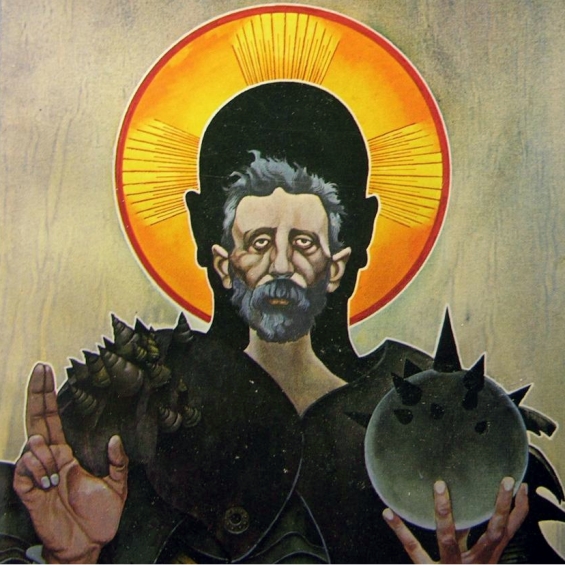
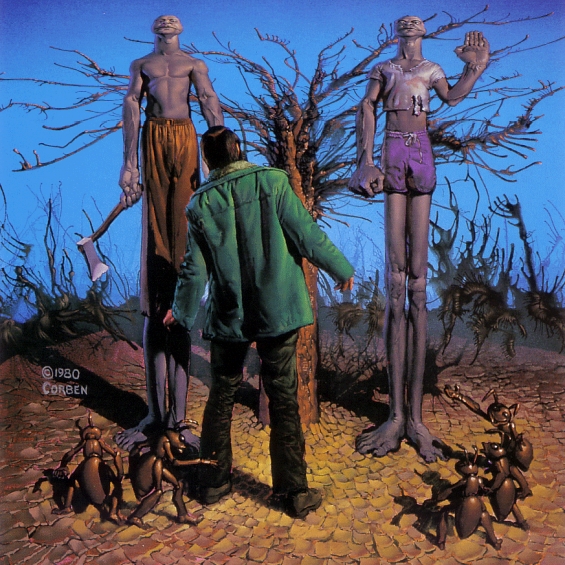
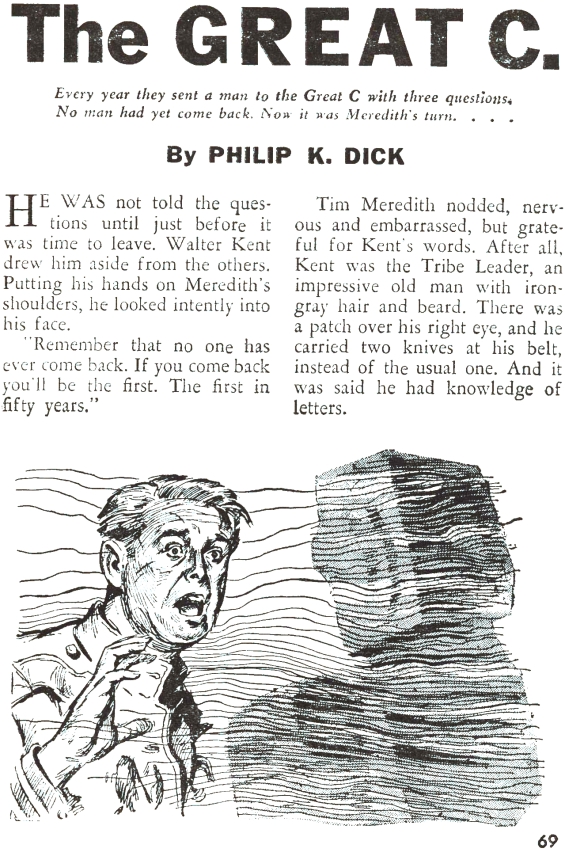
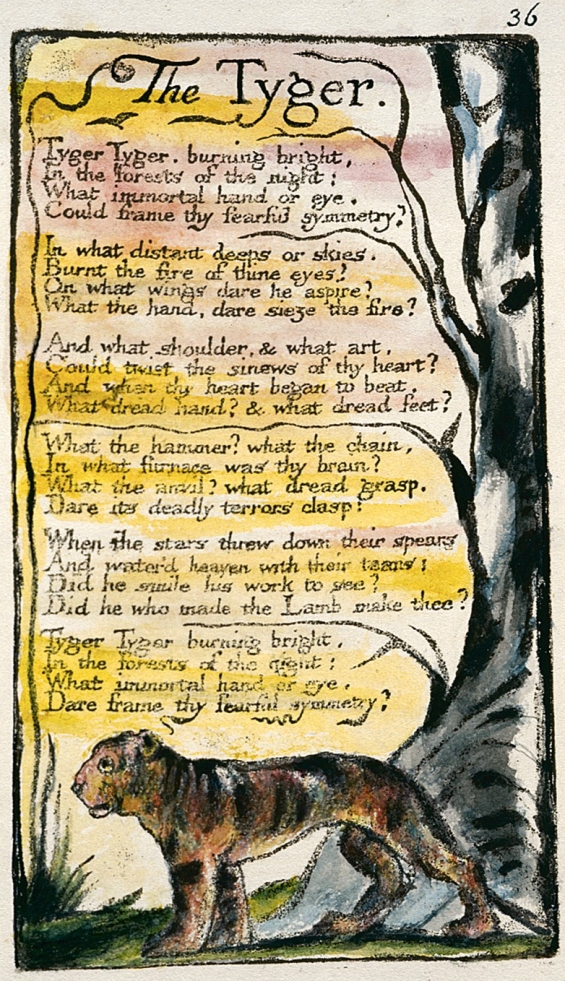
Posted by Jesse Willis

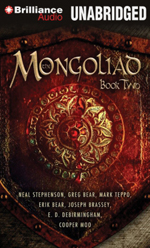 The Mongoliad Book Two
The Mongoliad Book Two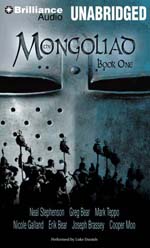 The Mongoliad: Book One (Foreworld Saga #1)
The Mongoliad: Book One (Foreworld Saga #1)

